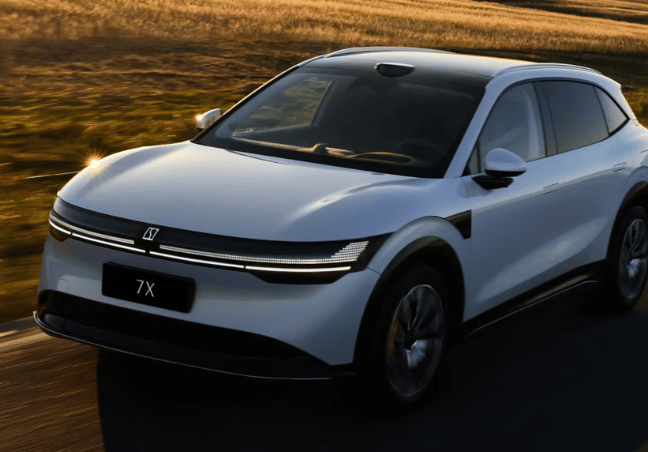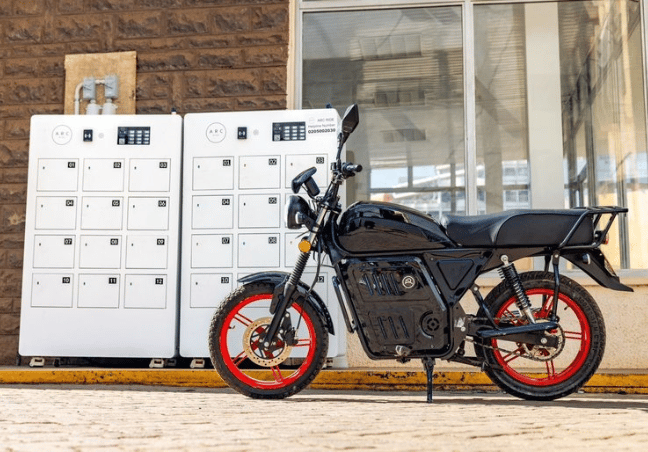- Mobility Rising
- Posts
- Ethiopia bans non-electric trucks - just like that
Ethiopia bans non-electric trucks - just like that
Dear subscriber, this is a prototype. Please help us with feedback and tips. Press reply.
 | Only electric trucks will be imported into Ethiopia following the country’s new ban on fuel truck imports. This was announced by Prime Minister Abiy Ahmed this month. It follows the ban on fuel passenger vehicles in January 2024. Ethiopia has progressively widened the ban to cover various vehicle types, including those used by diplomatic missions and international organisations. |
Ethiopia’s ban on fuel trucks is aimed at saving the country foreign exchange. Trucks are heavy users of diesel, which Ethiopia imports at a huge cost. Electric trucks will be using its cheap, abundant and locally-generated electricity.
Since the start of the ban on non-electric cars, Ethiopia has tripled its EV count from an estimated 4,600 in 2023 to about 14,000 in mid-2025. The ban on fuel trucks is expected to increase electric trucks sales, though not without pain.
Our take: Without urgent investment in sufficient public fast chargers, the ban could cripple Ethiopia’s logistics sector… Read more (2 min)
Egyptian International Motors (EIM), the exclusive local agent for Chinese automaker Zeekr in Egypt, is preparing to unveil the all-new Zeekr 7X. Egypt will be the electric car’s first market in Africa. A premium five-seater SUV, the Zeekr 7X offers 75 kWh and 100 kWh battery options with a range of up to 615 km. It uses an 800V high-voltage system, supporting very fast DC charging. |
Zeekr entered Egypt early this year with the Zeekr 001 and Zeekr X models. It has established itself as one of the top EV sellers in Egypt, competing in the premium electric SUV segment with the likes BMW and Mercedes-Benz.
Egypt recently banned charging stations from using Chinese charging ports, which could slow down Chinese EV companies. The restrictions force customers using Chinese ports to buy expensive adapters.
Our take: European brands can’t rest on their laurels… Read more (2 min)
Africa’s electric mobility sector attracted $10 million in funding in September, the same amount as in August. The funding was raised by ARC Ride, an electric motorcycle startup based in Kenya, and will be used to scale up battery swapping stations. This marks its second funding round in 2025, following a $5 million raise in May from British International Investment (BII). |
EV funding in Africa has been concentrated in East Africa this year, with deals recorded in every month of the year except January and February. West Africa follows in second place, while North Africa ranks third.
Investment in the EV sector this year has largely targeted electric two-wheelers, with most electric cars being imported.
Our take: We anticipate an increase in deal activity as more companies seek additional capital to scale operations… Read more (2 min)


Dustin Khaler, Electric Mobility Association of Kenya (EMAK) Assistant Secretary, engaging in a panel at the association’s roundtable
Events
📅 Attend Dakar Slush’D event (Oct 10)
📅 Register for Urban Mobility Summit in South Africa (Nov 6)
📅 Plan for Auto Equip in Nigeria (Nov 11)
Jobs
👩🏻💻 Become a Embedded Systems Engineer at Balancell (South Africa)
👨🏻💻 Join EVRaid as a Senior Embedded Engineer (Egypt)
📊 Apply for Training and Onboarding Analyst at MAX (Nigeria)
Various
🚗 EV convoy flagged off to Ethiopia
🚘 Stellantis launches Leapmotor in South Africa
🚙 BevAgro electrifies Nigeria’s food supply chain with EVs
Seen on LinkedIn
Niko Kadjaia, Co-founder of Tri, says, “Demand (of electric tricycles) is outpacing supply by 3x. With strong margins and a lean setup, we are fully focused on reaching net profitability next year. With new products, in more markets.”

